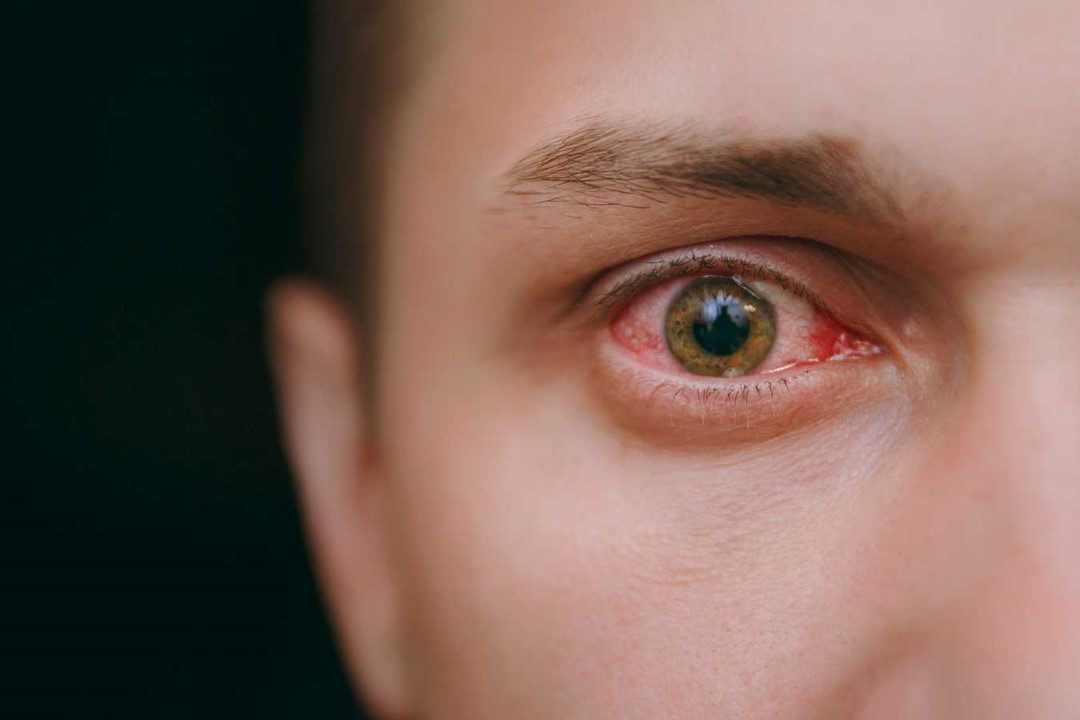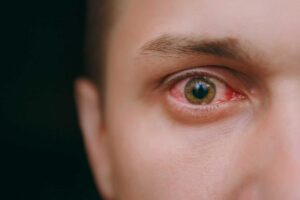There is nothing wrong with the color pink, except when it’s the color of your eye.
Pink eye is a sign of an allergy or infection. The disease affects six million Americans every year and accounts for 1% of all primary care visits.
Is pink-eye contagious? Yes, it is! With so many different types of infections and bacteria, there’s no telling what you’ll get.
Luckily for those with a fear of the virus spreading to others nearby, there are several ways that can help protect your body from catching this terrible disease.
Keep reading below to learn everything you need about how to stay safe around other people after contracting pink eye yourself.
What Causes Pink Eye?
Pink eye, which is medically known as conjunctivitis, is an eye disease. If you’re thinking your pink eye is just a nuisance, think again.
It’s really important to know the difference between common and uncommon types of this disease so that you can take care of it quickly before infection sets in!
Bacterial Pink Eye
The eye infection that’s commonly referred to as pink eye is actually bacterial conjunctivitis. The common cold and coronaviruses are the usual culprits for this type of inflammation in one or both eyes, but various types of bacteria carry the same risk factors.
So, when you touch your nose with dirty hands and then rub your eyeballs while not washing them off first (or maybe just looking at something on someone else who had their fingers up there), think twice before going without treatment!
Allergic Pink Eye
As the name suggests, allergic pink eye comes from allergies. Forty percent of the population suffers from allergic conjunctivitis.
Allergic pink eye is triggered by:
- Pollen
- Grass
- Dust
- Mold
- Pet dander
- Ragweed
- Air particles (like smoke and pollution)
- Cosmetics
An allergen triggers a reaction that causes red and watery eyes. Allergic pink eye is not caused by bacteria infections, and therefore is not contagious.
Viral Pink Eye
Viral conjunctivitis is the most common form of infectious conjunctivitis. It stems from various types of viruses, including the:
- Rubella virus
- Herpes simplex virus
- Adenovirus
- Epstein-Barr virus
- Rubeola virus
A contagious infection, viral pink eye can be spread through droplets emitted when a person coughs or sneezes. It typically lasts just a few days but severe cases may take up to two weeks for the eyes to heal completely.
Do I Have Pink Eye?
Pink eye symptoms may appear in one or both eyes. The infection inflames the membrane. The inflammation stimulates an overproduction of mucus and tears to protect the eye.
It is important to recognize the signs of pink eye because redness around the eyes can be a symptom of something else. Typical pink eye symptoms include:
- Itchy, red, and watery eyes
- Swollen eyelids
- Cloudy vision
- Burning sensation in the eyes
- Light sensitivity
- Head pain
- A grainy feeling in the eye
- Crusty eyelashes and eyelids
- Swollen lymph nodes in front of the ears
Bacterial pink eye is not just a pain in the peeper, it’s also accompanied by thick yellow-green discharge as well as an ear infection.
Allergic pink eye only affects one of your eyes and produces clear fluid (not to mention other allergy symptoms like runny nose, sneezing et cetera).
Viral conjunctivitis often comes with cold-like symptoms such as fever or sore throat.
How Long Does Pink Eye Last?
The duration of conjunctivitis depends on the severity and type of infection.
Bacterial conjunctivitis requires medical care. Without treatment, bacterial pink eye can take two weeks to completely disappear. With professional care, mild bacterial conjunctivitis goes away within two and five days.
Allergic pink eye is caused by specific allergens. Symptoms should subside as soon as the allergen is removed from the person’s environment.
Just because you don’t see it, doesn’t mean that the allergens aren’t there. Spend a deep clean of your home to remove any mold or pet dander and give yourself peace of mind!
Mild conjunctivitis can last anywhere from 7-14 days depending on severity but herpes virus infections may require more intense medical attention for up to two weeks before they clear up completely.
Is Pink Eye Contagious?
Pink eye is so contagious that a person can spread it by touching their eyes. They should avoid contact with others and keep themselves from touching the affected area, or they might infect someone else too!
If you suspect you have pink eye, stay home. Rest up and seek medical care if necessary. Ignoring pink eye symptoms can make the disease worse or spread the infection to others.
How to Prevent a Pink Eye Infection
If you don’t want to end up with pink eye, the best way to avoid it is by practicing proper hygiene. As a rule of thumb, always wash your hands before touching your face or eyes, and try not to rub or touch them as much as possible when washing (or keep that hand away from contact!).
Bacteria and viruses also live on objects. Decrease your risk of infection by never sharing items that touch another person’s eye. This includes:
- Eye makeup (like lash curlers, eyeliner, eyeshadow, and mascara)
- Towels
- Pillows
Replace eye makeup every 90 days. Change your linens frequently, and wash towels and pillowcases in hot water to kill germs that might be hiding on them.
For those who wear contact lenses, thoroughly scrub your hands with soap and hot water for 15 seconds before touching your eyes. Be sure to reach beneath the fingernails, backs of the hands, and fingertips. Replace contacts as-instructed.
If someone in your home has pink eye, keep them separated from the rest of the household. Wash linens and clothing that the person may have touched to protect others from contracting the disease.
What Should I Do if I Have Pink Eye?
If you observe symptoms of pink eye, stop touching your eyes.
For those who wear contacts, do not put in your lenses if you wake up with pink eye symptoms. Instead, throw the lenses out. Do not insert new contacts until your pink eye symptoms are 100% gone.
To relieve pain and irritation in your infected eye, place a warm damp washcloth over the area for five to ten minutes.
Alternatively, you can use “artificial tears” with few drops applied sparingly using a dropper avoiding contact between it and the eyes.
Conjunctivitis is a common infection that can be treated with household pain relievers. Ibuprofen and acetaminophen work well for the symptoms of this condition, which will usually subside within one to two days if not resolved by then.
If they do persist or worsen, consult your local medical professional who may further address any underlying causes as necessary.
Treating Allergic Pink Eye
Allergic pink eye treatment requires removing the allergen that is triggering the reaction from a person’s environment. For example, people suffering from allergic conjunctivitis due to pet dander may need to give up their pet.
In circumstances where removing the allergen is impossible (like with pollen or dust), a patient may use allergy medications and prescription eyedrops to ease symptoms. Severe allergy conjunctivitis may require a combination of medications, like vasoconstrictor and antihistamines.
Treating Bacterial Pink Eye
If you feel like your eye infection is not getting better, give it a chance and apply treatments as long as they are needed.
If the symptoms persist or get worse even after treatment, visit your local doctor for faster recovery with antibiotics.
Treating Viral Pink Eye
Think of viral conjunctivitis as having a cold in your eye.
Cold remedies like drinking plenty of fluids, getting lots of rest, and eating soup can help you feel better. Patients may also take over-the-counter pain killers or cold medications to alleviate symptoms.
Most people recover from viral pink eye infections on their own; however, a severe case should be taken care of by professionals as it could have been caused due to the herpes simplex virus which requires anti-viral medication for treatment.
The Leaders in Eye Care Are at Your Service
What causes pink eye? The disease stems from allergens, bacteria, and viruses.
How can you prevent conjunctivitis? By keeping up with proper hygiene, not sharing makeup and linens, and not touching your eyeballs.
Some people prefer to use a cold compress on their eyes, but this can make the situation worse.
To save your sight and have clean eye relief in minutes, visit JJ Optical for expert care of all types: pink eye treatments to new glasses—we’ve got it covered!
Schedule an eye care appointment with us now.



